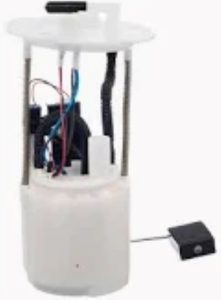Yes, low voltage does harm fuel pumps, and this can reduce the efficiency, the life span, and the performance of the pump itself. The fuel pumps (usually 12 volts on most vehicles) depend on a stable voltage supply to keep the fuel flowing into the engine. Below this voltage, typically around 10 volts, the pump can lose as much as 30% efficiency and will no longer be able to pump fuel at the required pressure. When the pressure drops, the engine doesn't receive enough fuel for proper combustion, resulting in ignition problems, sluggish acceleration, and other performance issues.
However, low voltage impacts a fuel pump so directly that it tends to burn out faster than it otherwise would. Because it needs to work harder to make up for the low power supply, overheating becomes a common issue. Continual low voltage exposure can reduce above ground fuel pump lifespan — with studies showing life can be cut about 40%, depending on use patterns. This can mean a sudden malfunction of the fuel pump, which necessitates an expensive repair or replacement. Lower voltage on high demand engines causes these fuel pumps to operate at a point of electrical resistance which can increase chance of overheating and lead to total pump burnout.

Battery or alternator problems can lead to voltage fluctuations, and that just creates more risks. A weak alternator, with volts under load suffering less than 13.5 volts, may not be supplying a rock-steady supply to power the fuel pump during hard acceleration or high-speed running situations. Experts suggest that fluctuations in the vehicle's charging system should be checked at regular intervals as the wear and tear on internal components can manifest due to inconsistent delivery of fuel to the pump.
The danger is even more pronounced for people with low-flying performance cars or modified engines. Standard fuel pumps need a certain amount of power to keep efficiently pumping the fuel as needed to the injection system, and if they are not receiving that power (due to a voltage drop), then their delivery rate can drop by sometimes as high as 25%, which can spell bad news for our engines since we may not only be losing performance, but starving our engine with too little fuel and causing a lean condition that could result in engine damage. High-flow fuel pump manufacturers such as Walbro issue specific warnings that lack of voltage prevents their pumps from achieving maximum flow, which may result in early pump failure.
Without a stable power supply, your Fuel Pump just will not work. Routine car care, especially for the battery, alternator, and electrical connections, keeps the voltage levels where they need to be; thus, giving the fuel pump a longer life while also helping it perform consistently under varied driving conditions.